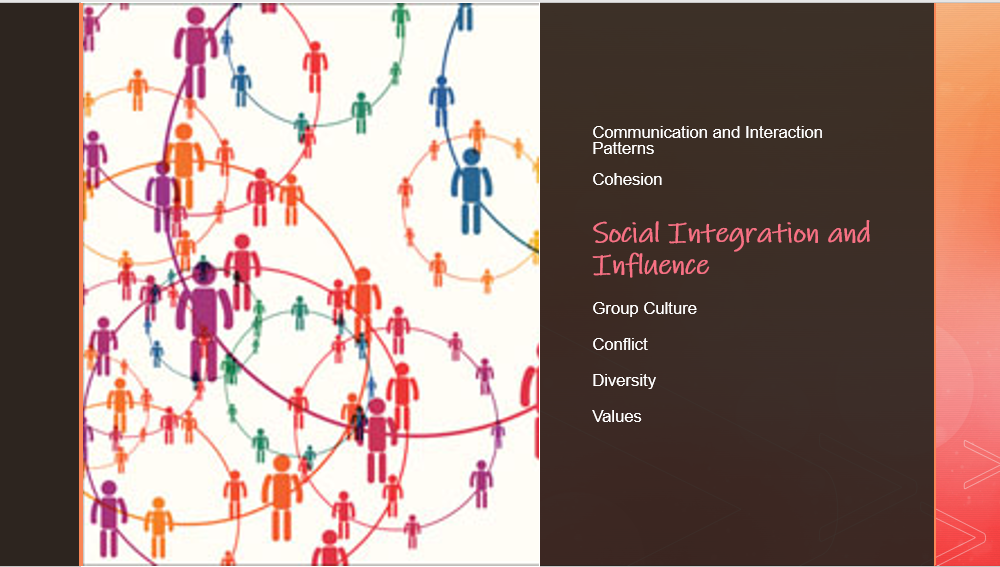
Social integration refers to how members fit together and are accepted in a team.
Teams are not able to function effectively unless there is a fairly high level of social integration among the members.
Norms, roles and status lend order and familiarity to group processes, helping to make member’s individual behaviour predictable and comfortable for all.
Norms
Norms are shared expectations and beliefs about appropriate ways to act in a social situation such as a team. It can also be described in simpler terms as “rules” that tells team members what is the “right” thing to do and what are the “wrong” things to do in that team. Norms normally develop as the team develop. The norms will be determined by the values of the team. Values are the things that people value and hold dear. Normally one’s values are taught during childhood years and are also determined by a person’s cultural beliefs.
Like norms, roles can also be an important influence on team members. Roles define behaviour in relation to a specific task or function that the team member is expected to perform. Roles are important in a team because they ensure that tasks are equally distributed.
Status
Status refers to the ranking of each team member relative to all the other members of the team. A person’s status is determined by his position and level of expertise in the team. Team members with low status are least likely to conform to group norms because they have little to lose by deviating. For this reason low-status team members have the potential to cause problems in teams.
Medium status team members tend to conform to group norms because they can retain their status or even achieve higher status by doing what is expected of them. Therefore, team leaders should provide opportunities to low-status team members to contribute to the group so that they can become more socially integrated and achieve higher status.